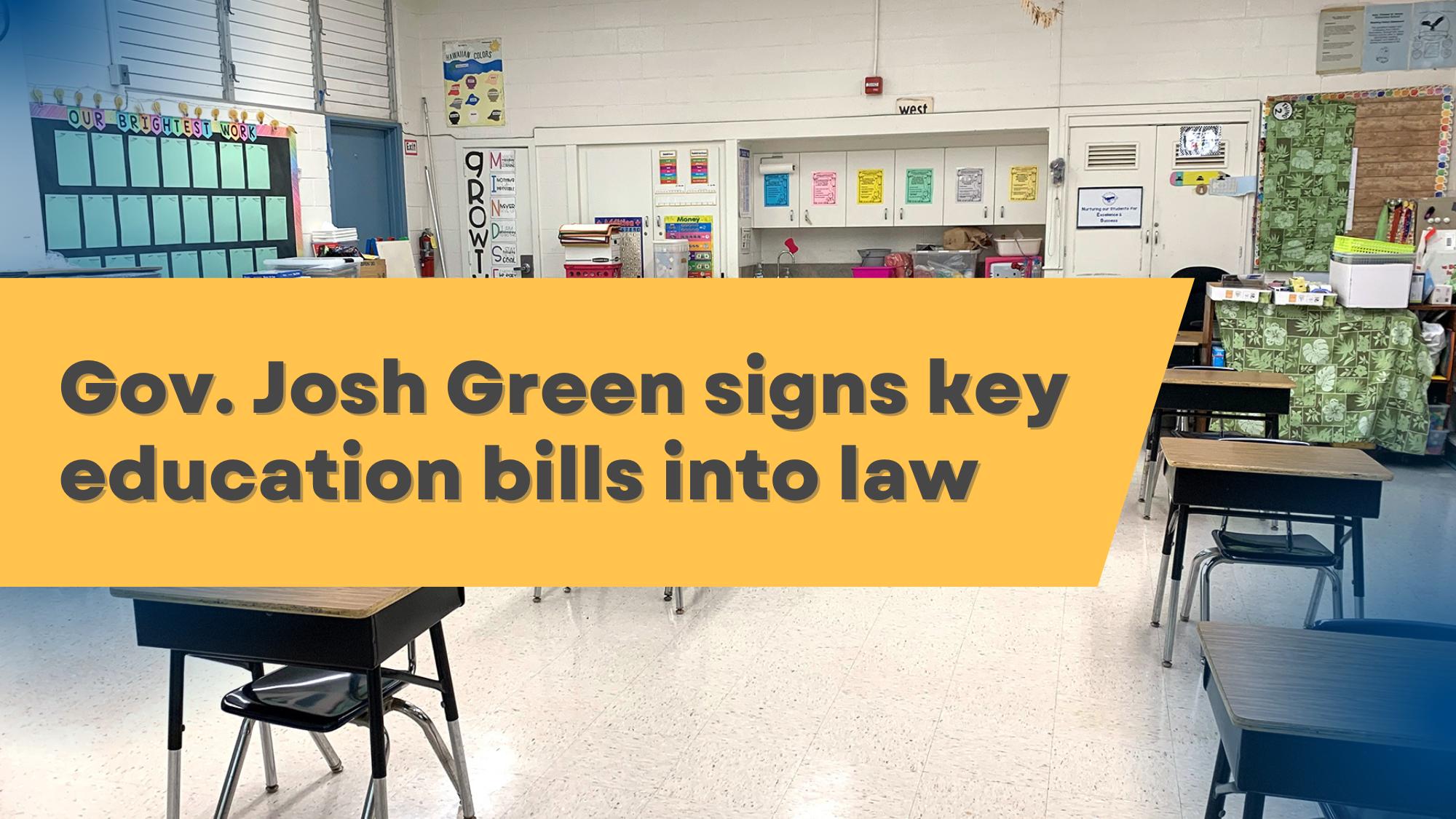Funding includes teacher housing, universal pre-K
Posted: July 3, 2023
Gov. Josh Green Monday signed several bills to improve education in Hawaiʻi during a ceremony at Royal Elementary School on Oʻahu.
Bills related to teacher housing, universal pre-K, student health care, and computer science became law Monday as a group of education stakeholders looked on.
Green said, “We’re spending a lot of time on education…From 2022 to 2023, for the school year, there were 169,000 of our keiki enrolled in our DOE. This is the base of our society. The most important thing we can do is care for them and provide them with a great education. And so these bills are going to reaffirm that.”
Educator workforce housing a ‘critical need’
Senate Bill 941 allocates $50 million for the School Facilities Authority (SFA) to partner with public and private agencies to develop workforce housing for teachers, educators, and staff on or near schools across the state.
State Sen. Michelle Kidani, chair of the Senate Committee on Education, talked about the importance of teacher housing.
“We all know providing financial incentives and affordable housing options for our teachers is crucial to attract and retain talented educators,” Kidani said.
“It is particularly challenging to recruit and retain teachers in Hawaiʻi with the high cost of living and very little affordable housing available. The funds appropriated in the budget are a great first step towards meeting this critical need,” she added.
The Legislature funded educator workforce housing at $170 million. Green said he will spend $50 million in the first year and allocate the rest of the money for the next three years.
The proposal, which began with housing near high schools in Nānākuli, Waipahu, and Mililani, expanded and now will likely include those sites, plus locations in Windward Oʻahu, as well as Hawaiʻi Island, Maui and Kauaʻi.
Universal pre-K and early learning moves forward
Green signed a key bill aimed at providing access to pre-K for all 3- and 4-year-olds.
House Bill 960 explicitly places pre-K facilities within the authority of the SFA and transfers $200 million in general funds to the School Facilities Special Fund for fiscal year 2023-2024.
House Bill 503, which Green also signed into law Monday, will require the Board of Education and the Hawaiʻi State Department of Education to work together to make computer science a graduation requirement by no later than the 2030-2031 school year.
Senate Bill 1344, also signed into law, will replace the term “school health aides” with “school health assistants” to reflect recent changes to the job title. The bill allows school health assistants to administer medication to public school students with the approval of a health care professional within the HIDOE, Department of Health, or a health care service pursuant to a written agreement with the HIDOE.
Lt. Gov. Sylvia Luke, who spearheads the universal pre-K Ready Keiki initiative, spoke Monday about the bills’ impact on students.
“This administration from day one has looked at ways that they can improve the education of our keiki…Education and our school system is a microcosm of what’s going on in the entire state, whether it’s housing, whether it’s workforce, whether it’s growing the potential of kids, and of course, having a leg up in life,” Luke said.

